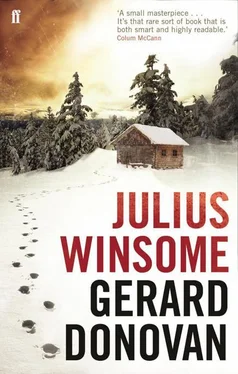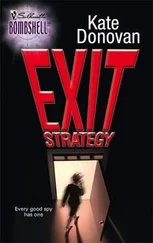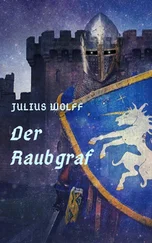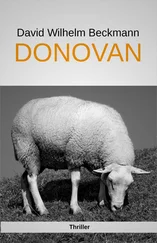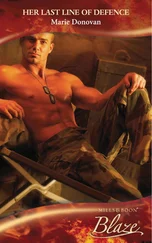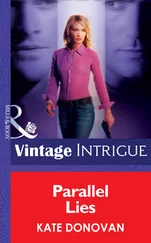I decided to check the truck, now that both men were down, and placed the rifle on the snow and moved to the passenger side window, the white blanket covering my head. He was still alive, and I recognized him. It was Pascal, the complaining man from outside the supermarket, the one with the gun, the law and order man. By way of comfort I said something to him from Hunt magazine, something a hunter would understand:
I honor your sacred spirit, and the firstling too, your friend. But I had to take you.
I’ll kill you, he whispered, and slumped like a man snoozing. I must have seemed like a ghost to him, a spirit come to take him away. Some men won’t go quietly.
They say you glimpse the bullet that will kill you. I am sure I saw this one. It came from his side of the truck, through his side window, passed in front of his face and along my right temple and whipped the saplings behind me like a spit.
A third man.
THE SNIPE IS A SHOREBIRD, A FAST WADER IN MARSH ground with a long, slender bill that sews for insects and such. When it sees you it crouches until the last moment and then bursts out of the grass, flying crookedly, an impossible dart through the air. A long time ago some men were fast enough with a rifle to put an aim on one and shoot it out of the sky. Those men went sniping.
Sniper. The word drifted across the trenches in 1914 and became a soldier’s word: a hidden man who made people disappear one at a time, a man who knew camouflage and wore the countryside on top of him, whether crouched or crawling, selecting a position, or observing the stir of a hand at a hundred yards and putting a shot through it. If captured he could expect little other than be executed like a spy, because his uniform was the invisible, because his eye looked along the sight and made entire platoons take cover, because he killed people’s friends. There must be something missing in him, an empathy gone or never there to begin with, so he receives none in return.
These days, from what I’d heard recently, anyone who lifted a rifle was called a sniper, when most likely it was just an angry man or a cruel boy with a powerful weapon on a clock tower or in a bush along the highway, shooting innocents because they happened to be there. Sniper: the very word is quickly said, but the best of them are slow, patient, deliberate men. I had heard that word on the open street in town the day before, heard discussion of a possible shooter who had lately killed some hunters, for what else could have happened to these men, gone off and left their families? No such thing. And when I went for groceries, the word was that they were definitely missing, these men, and it was clear to me that the people in the supermarket were giving themselves up completely to rumors and talk of rumors. The authorities were searching now, but that is the nature of hunting, that shots are fired in the wilderness. Anyway, I knew myself as no sharpshooter, lacking the training and true patience required. They must have been discussing another individual, though it is true that I was involved in a few incidents recently.
They say it takes an unbalanced mind to hold a rifle that steady. But my father said the English sniper who gave my grandfather the Pattern 14 Enfield was a happy man who said he was glad to see the end of the fighting and wanted to spend the rest of his life in a small country town with a church spire and the tinkle of bells in the evening, the rustle of sheep and the warm smell of the sea in summer. Of this reputed imbalance in the heads or minds of marksmen my father said little, other than that the best sniper is passionate and cold at the same time, awkward up close, best at a distance.
That sounded like balance. I hoped this third man was not of that kind. If so I was breathing the last of this life into me already.
I THOUGHT I SAW A FACE AT TWO HUNDRED YARDS, AND I ran from the truck to my rifle and dove to the ground, hooking the Enfield in my left hand and sliding to a halt while holding the blanket above me with my right, to cover my hair.
To my right I heard the truck still trying to straddle the tree—that noise could be my undoing—no way to track the sniper, to gauge his shooting. That blasted truck. The trigger of the rifle was five inches forward of my hand. No, this was the thing, not to move. I lay under the blanket and breathed face down, deep and slow. A shot punched the snow a yard to my left, another then two yards to the right, judging by the shiver and puff. He was trying pot luck. Good: he could not see me. That meant he didn’t have a telescopic sight or wasn’t willing to sacrifice his wide but poor view for a better one and possible exposure. He should have. Another shot, this one inches from my skull. Maybe he did see me but aimed poorly.
I kept my face in the snow. The chill petrified my bones and lips. Not to show my face, this took some restraint as my mind kept imagining him sneaking up on me and all I had to do to save my life was look up and see him stalking. Now he stands over the blanket and aims down on me. Look up, Julius. Look up! But I knew that if I looked up I would distinguish myself from the snow with my pink face and die. I felt my heart palpitate, a tremor cordis in me.
I had time to kill, so I whispered to the snow the two words under F that I had read before leaving for the woods. I could not bring to mind a third, something of no use, it must have been.
Then I slid back the first inch and waited.
No shot came.
Then I moved another inch, this time to my right, toward the truck. No shot. At two hundred yards, the eye cannot catch an inch of movement at a time, a foot, definitely, but not the tiny inch. For thirty minutes after that I moved but one inch at a time, with ten seconds’ rest between each inch, a World War One battle maneuver against an active sniper, a story told by my grandfather to my father and so to me. It still worked. Not long now. I knew I was safe when I felt the truck’s tires spin at my ear. I held up a pinch of the blanket and glanced sideways. Yes. The truck was now between me and the rifleman: I had covered fifteen feet. He was cautious, too cautious for a hunter. I rolled to one side and brought the rifle to my chest, moved the bolt and chambered a new round. He heard it somehow through that damned engine, and a bullet ripped the snow where my head had lain thirty minutes before.
For him to shoot now was surely foolish: he had given away his position for no reason. Better to have remained silent and alert. Sooner or later I would have had to rise and he would see me, or night would fall and we could both have gone home.
I rolled a yard to the right and held the blanket out before me, waited, then moved my head under it, nudging at the flap with a finger one quarter inch and inserted my eye into that space.
I found him where I saw him first, and clear as daylight. He had made a crucial mistake: he forgot about his boots. He had worn a white top and scarf for his head, good camouflage, but when a man lies prone in the snow, the heels of his boots are at a higher elevation than his head, about two inches, and his boots were black. You have to paint the heels of your boots the color of the landscape if you want to lie down with your rifle. And there they waved like two black flags. By aiming right between the boots and down a fraction, I had a headshot.
Three bullets. How confident was I? The truth was my hands and face were numb from lying in the snow. I could not trust the aim and had to go around him. I don’t know how much time I spent closing the distance, though it was easier with the trees as cover. I can say that about one hour after he fired upon me, I brought my rifle to my shoulder at a distance of ten yards from him, off to his side.
Читать дальше
